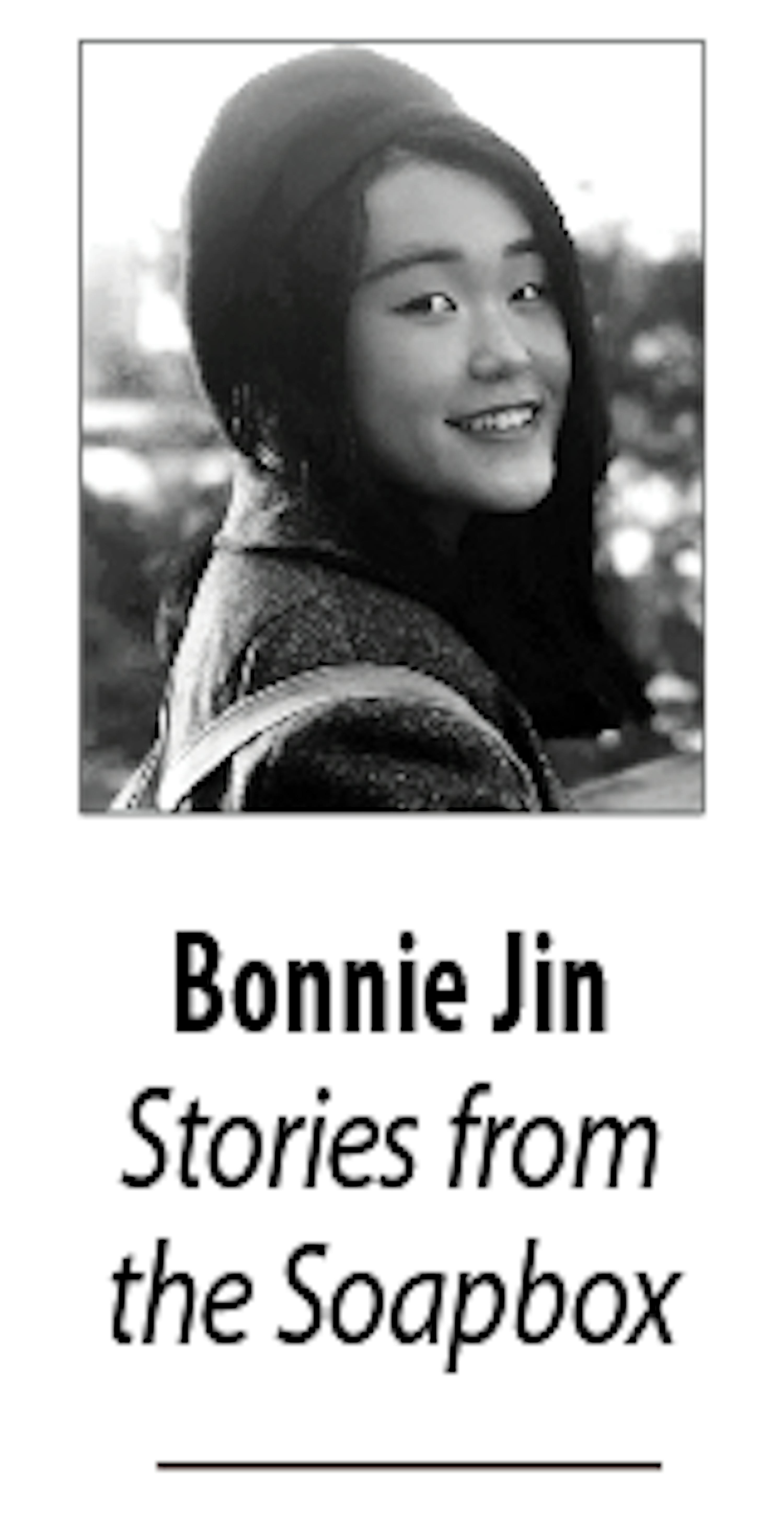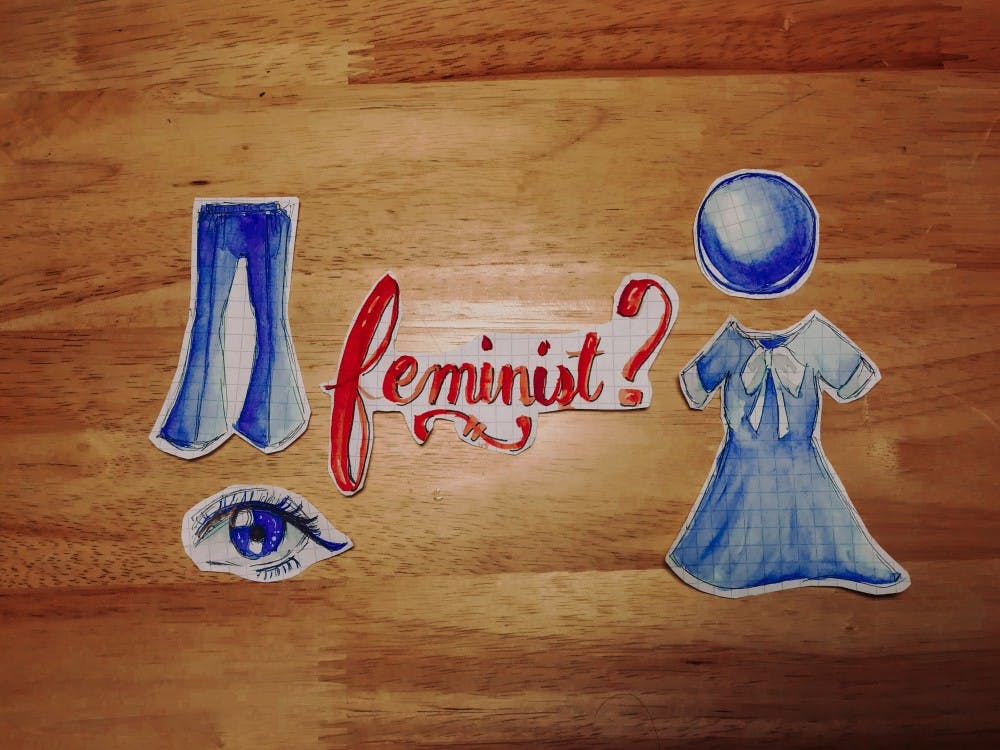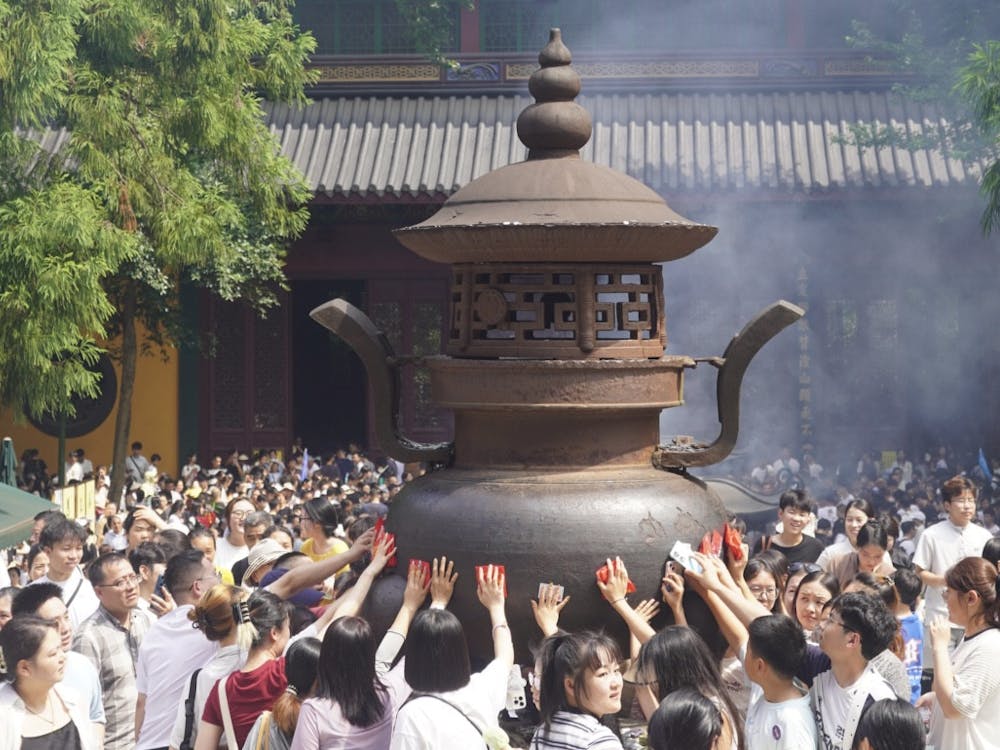
I) At age six I told my mom to put away my dresses because I needed pants to play wallball with the boys.
For my suburban elementary school in mid-2000s Massachusetts, wallball constituted the best of recess. If you were competitive and wanted playground recognition, you knew you had to play wallball. The main objective is to eliminate all other players by hitting a ball against a wall. Wallball involves intense running and hand-eye coordination, making pants a practical necessity. And to play competitively, I argued, dresses just weren’t going to cut it.
Back when I played four square, dresses were fine. Four square requires players to bounce a ball between quadrants. You had to stay on your feet, but it doesn’t involve sprinting the way wallball does. There were always a couple boys that played four square with us, but mostly girls played.
A week after I made this declaration to my mom, I remember entering the girls bathroom to see another girl from my first-grade class. She also wore pants. She’d worn pants before we all started playing wallball, and 12 years later she wore pants to prom. We were both washing our hands when she asked me if I was also a tomboy. For the me of 14 years ago, who had just moved into a new town and only wanted to fit in and be cool, I told her yes without understanding what that meant.
II) I spent the majority of middle school alternating between five pairs of washed-out bootcut jeans.
My days without jeans were less than enjoyable. In seventh grade, on the one day I decided to wear a dress, my teacher — a white male on the edge of retirement — personally came over to my desk and said, “You’re beautiful,” in Chinese. (I am Asian-American. I did not know how to respond. Intersectional awkwardness ensued.) On our school trip to D.C., I chose to wear a dress because June was too hot for jeans. Though I walked with other students, an older man chose to catcall me by “complimenting” my dress.
These were isolated incidents, but I kept feeling uncomfortable without jeans. Sometimes I felt like teachers didn’t take me seriously. Sometimes I just didn’t feel as cool or popular as the athleisure girls (with their leggings and borderline-aggressive spirit).
A lot of the time, I felt straight-up uncomfortable with so-called “feminine” activities. I felt a need to disassociate from the girls who experimented with makeup or the girls that formed a Twilight book club. But at home I secretly read (and for all its problems, deeply enjoyed) Stephanie Meyer’s magnum opus, and spent whole weekends watching Michelle Phan explain what glue she used to stick three stacks of lashes onto her eyelid.
Like many girls today, I enjoyed “feminine” activities but was worried that indulging in them would make me less of a feminist.
III) February 2019. I’d been in Tokyo for six months of my year abroad on exchange. I’d shopped at the stores where other girls shopped. I’d worn the eyeliner other girls wore. I’d curled my hair the way other girls did.
At a school event with my closest friends, I asked them to help rearrange the chairs so as to fit the discussion circles as necessary. At this point, one of my guy friends commented, “Bonnie’s so strong, isn’t she?”
Some of the other guys nodded in agreement.
“Well yeah, it’s Bonnie.” They grinned.
What did that mean?
Was my personality coming across as too strong?
Or maybe I’m overweight — and that’s what “strong” means?
This incident — coupled with the accumulation of too many incidents — led me to continuously force my friends to tell me what part of myself I needed to change so that I would fit in better with our society.
During this time I cried a lot in my room. I didn’t recognize who I was — or should, or wanted to be — anymore.
IV) It’s 2019, and sexism is strong. But it’s expressed and is harmful in different ways than before.
So long as it doesn’t cause harm, people should have the freedom to just do the things they enjoy. But reality makes this easier to say than do. There’s a societal stigma attached to women who participate in mainstream “masculine” activities. There’s a stigma attached to traditionally “feminine” activities, which — while perhaps more “socially acceptable” — are susceptible to mockery. Noting the variations of “feminine” and/or “feminist” traits across different cultures, and adding on other biases pertaining to a spectrum of identities, suddenly you’re faced with a whole other level of discomfort and difficulty in what should be simple self-expression.
In my mind, I know I’m a feminist, but I don’t always feel accepted that way. In feminist spaces I sometimes feel uncomfortable presenting as feminine. If I present as feminine, I worry that other feminists might think I’m less feminist than them. I worry that I will make those who don’t present as traditionally feminine uncomfortable in my own presentation, and end up going to discussions in what makes me feel uncomfortable.
Without being compelled to do so, I have female friends who just want to be housewives but are criticized for even expressing this notion. In reflection, this is internalized sexism, in which traditionally masculine traits — even within feminist circles — are elevated over feminine ones. And I’ve certainly been guilty of this myself.
Societal patriarchy marginalizes feminine activities while universalizing masculine ones. There’s still a long way to go before this system is dismantled. But regardless of how feminine or masculine or non-binary we try to repackage and re-present ourselves, these actions alone won’t earn women the same respect en masse as they earn men. On our march to revolution, the least we can do is be comfortable as ourselves. And that applies to everyone else, too.
At some point in our academic careers we learned that feminism means “equality of the sexes.” But to get away from the intellectualization of the notion and apply it to your own, very real life — with all the societal stigma, internalized sexism and institutional biases that are thrown at you — that’s something that’s taken me the past 20 years of my life to even begin to grapple with.
Looking back, I’m not upset that I wore pants to play wallball. I had to, but I just liked them anyway.





